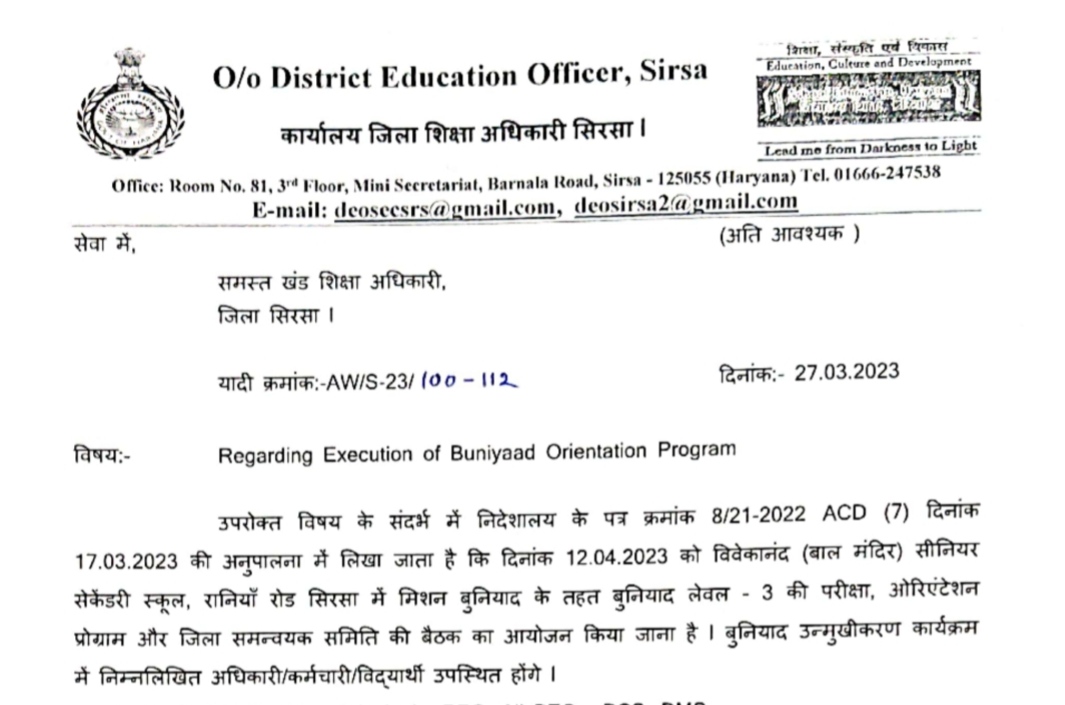124 PM Shri schools are set to open this academic year in Haryana
In a step towards establishing centres of excellence to overhaul school education in the state, the directorate of school education has been accorded the approval to convert 124 government schools into Pradhan Mantri Schools for Rising India (PM-Shri) schools.

These schools are likely to be inaugurated this month by chief minister Manohar Lal Khattar
The directorate of school education (DSE) announced that the government has received approval from the ministry of education
to establish at least 124 PM-Shri schools across the 22 districts in the state in the first phase. The ministry has also released a set of guidelines that need to be followed in these schools to ensure standardization of education in 14,500 government schools across the country that will be upgraded into PM-Shri schools.
The directorate has told TOI that it plans to start the classes in these schools from the current academic session itself. A proposal has been sent to the state government and depending on the availability of the chief minister and education minister, these schools are likely to be inaugurated by the end of this month
“All the district officials have been directed to make the necessary arrangements such as rechristening them and devising detailed plans for running these schools,” secondary education director Anshaj Singh told tol .
The education department claims the curriculum will be a replica of that being followed in the state’s indigenous Model Sanskriti Schools
. Thus, they will hold classes in two mediums—English and Hindi—and will be affiliated with the CBSE board.
In terms of academic curriculum, these schools will follow the footsteps of frontline schools in the state and inculcate new-age pedagogy to enhance the learning outcomes among the students. These schools will follow the pedagogy recommended under the National Education Policy (NEP)-2020.
They will be run based on a five-year development programme and each school will have a fund of about Rs 1 crore for each year to overhaul the teaching-learning ecosystem.
Besides having ICT-based teaching infrastructure that has become a mainstay of all development models that are being currently implanted in state-run schools, these schools will also be developed for carbon neutrality and environmental sustainability. They will be developed into green schools, incorporating facilities such as solar panels, nutrition gardens, a plastic-free environment, and waste management units, among others.







